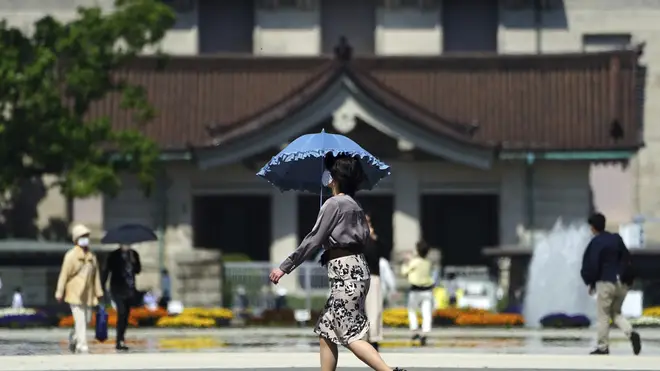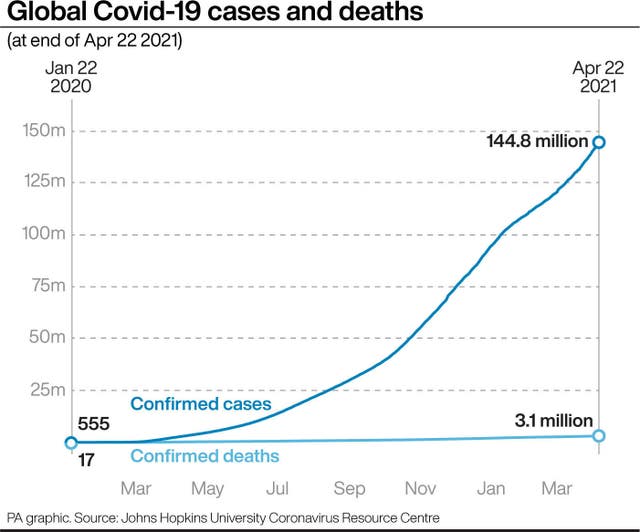
Clive Bull 1am - 4am
23 April 2021, 14:54

Prime Minister Yoshihide Suga announced the emergency for Tokyo, Osaka, Kyoto and Hyogo from April 25 through until May 11.
Japan has declared a third state of emergency for Tokyo and three western prefectures amid scepticism it will be enough to curb a rapid coronavirus resurgence ahead of the Olympics in July.
Prime Minister Yoshihide Suga announced the emergency for Tokyo, Osaka, Kyoto and Hyogo from April 25 through until May 11.
The step is largely intended to be “short and intensive” to stop people from travelling and spreading the virus during Japan’s “Golden Week” holidays from late April through until the first week of May, Mr Suga said.
Japan’s third state of emergency since the pandemic began comes only a month after an earlier emergency ended in the Tokyo area.

For days, experts and local leaders said ongoing semi-emergency measures have failed and tougher steps are urgently needed.
Past emergency measures, issued a year ago and then in January, were toothless and authorised only non-mandatory requests.
The government in February toughened a law on anti-virus measures to allow authorities to issue binding orders for non-essential businesses to shorten their hours or close, in exchange for compensation for those who comply and penalties for violators.
The measures this time are to include shutdown orders for bars, department stores, shopping centres, theme parks, theatres and museums.
Restaurants that do not serve alcohol and public transportation services are asked to close early.
Schools will stay open, but universities are asked to return to online classes.

Mask-wearing, staying home and other measures for the general public remain non-mandatory requests, and experts worry if they will be followed.
Japan, which has had about half a million cases and 10,000 deaths, has not enforced lockdowns.
But people are becoming impatient and less co-operative and have largely ignored the ongoing measures as the infections accelerated.
Osaka, the epicentre of the latest resurgence, has since April 5 been under semi-emergency status, which was expanded to 10 areas including Tokyo, a step promoted by Mr Suga’s government as an alternative to a state of emergency with less economic damage.
Osaka governor Hirofumi Yoshimura, who on Tuesday requested the emergency, said the semi-emergency measures were not working and hospitals were overflowing with patients.
The virus surge, fuelled by a new, more contagious variant detected earlier in Britain, has spread rapidly across the country.

The government has also been slow in rolling out vaccinations, leaving the population largely unprotected before the Olympics begin in July.
The May 11 end of the emergency, just ahead of an expected visit by International Olympic Committee president Thomas Bach, triggered speculation that the government is prioritising the Olympic schedule over people’s health.
Mr Suga has been reluctant to hurt the already pandemic-damaged economy and faced criticism for being slow to take virus measures.
Japan’s inoculation campaign lags behind many countries, with imported vaccines in short supply while its attempts to develop its own vaccines are still in the early stages.
Inoculations started in mid-February but progress has been slow amid shortages of vaccines and healthcare workers.
The rapid increase in patients flooding hospitals has raised concerns of a further staff shortage and delay in vaccinations.